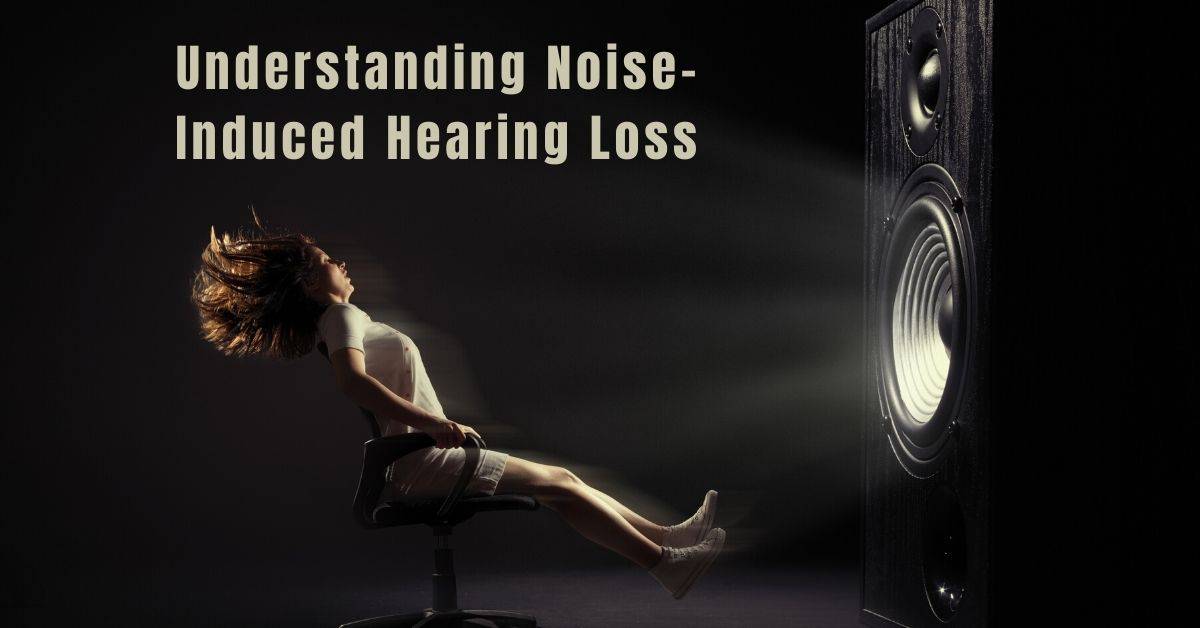- The Connection Between Hearing Loss and Dementia - July 30, 2024
- The Advantages of Rechargeable Hearing Aids - July 16, 2024
- How to Enjoy Music Festivals While Protecting Your Hearing - July 3, 2024
Noise-induced hearing loss (NIHL) is among the most prevalent types of hearing loss. Sensorineural forms of hearing loss like this occur in 23 percent of people over the age of 65.
However, the distinction with this kind of hearing loss is that, unlike the others, it is 100 percent preventable. Here we look at the causes of noise-induced hearing loss and how to prevent it from happening to you.
How the hearing system works
A basic understanding of how well listening works is essential to understand the noise-induced hearing loss better. To know how we lose our hearing, let’s first look at how it functions.
- Sound waves traverse the ear canal to get into the ear.
- These sound waves pass across the ear canal to the eardrum.
- Eardrum waves in our middle ear shift three tiny bones; these bones are called malleus, incus, and staples, which are the smallest bones in the body.
- The movements of those little bones cause fluids in our cochlea to move. The cochlea is a snail-like organ filled with fluid, located deep within the ear.
- This ear-fluid movement causes small, delicate hairlike cells to bend and sway over the liquid.
- These hairlike cells bend, which turns the sound waves into electrical signals.
- Those signals are eventually sent to our minds for processing via our auditory nerve.
- Then our brain interprets those signals and recognizes them as sounds.
How noise impacts our hearing
Short- or long-term exposure to loud noise, depending on the type of sound and how long a person is exposed to loud noise, can temporarily or permanently damage your hearing.
Examples of these loud sounds include:
- Heavy machines
- Working in a noisy environment.
- Concerts and sporting games regularly attended
- Playing music at a high volume on headphones or earbuds,
- Recreational shooting
Human beings are born with thousands of hair cells; those hair cells do not regenerate. It is the exaggerated flow of these hair cells ( in response to loud noises), which causes damage.
Many of us have suffered short-term hearing loss after leaving a concert or sporting event. You may have noticed that you had difficulty hearing – sounds are muffled, speak louder, ring in your ears, and not hear soft sounds.
A short term burst of sound means these effects won’t last long, but if you are exposed to excessive noise regularly over many years, the result is cumulative. Those hair cells lose sensitivity and are permanently harmed.
Hidden hearing loss
Researchers have uncovered an even more insidious hearing loss that also evades hearing tests.
New evidence over the past decade indicates that people whose hearing appears good during clinical tests may still be experiencing severe hearing loss. They may pass the tests, but they will always find it challenging to understand their friend in a bar across the room.
The presence of this more hidden hearing loss is a sign that more people will start showing signs of hearing loss (hidden or otherwise) at younger ages.
How to prevent NIHL
Being conscious and protective of your hearing health is critical. This can be done in several ways, including the following:
- Wear protective gear: Protective equipment such as earplugs and earmuffs can help protect you when you cannot escape from the noise.
- Avoid noisy environments: This might include loud concerts, public events, or lively enclosed public places.
- Enact workplace sound barriers: If you work in a loud environment, place a physical barrier between yourself and the source of the noise.
- Take breaks in listening: your ears need space, so make sure you take breaks when listening to music or podcasts on your headphones.
We provide teleaudiology services for those who are sheltering-in-place during this difficult time. We offer hearing tests, hearing aid evaluations, and anything else you need to get on the path to better hearing. Contact us today to set up an appointment!

